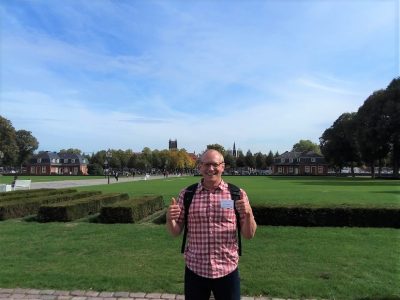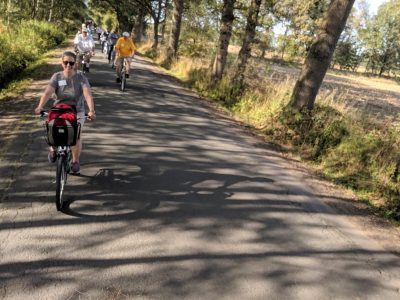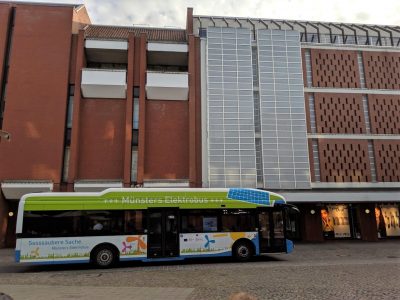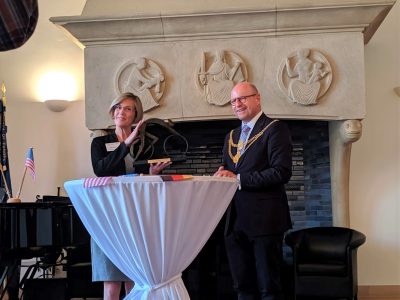
Kevin Bright, DMC Economic Development Agency and City of Rochester Director of Energy and Sustainability, returned from a week-long trip to Germany with plenty of ideas to help Rochester improve its sustainability practices.
The University of Minnesota Institute on the Environment organized the trip for government and community, policy and state agency leaders from several Minnesota cities, including Rochester, Elk River, Morris, White Bear Lake, Warren and Duluth. Each city is paired with similar partner cities across Germany; Rochester is paired with Münster. Traveling with Bright from Rochester were Mayor Kim Norton, Senator Dave Senjem, City of Rochester Sustainability Coordinator Kristi Knudson, and Katie Jones from the Center for Energy and Environment.
They spent the week learning firsthand how German cities are preparing for changes in energy and sustainability.
One day, the group rode on protected bike paths to a nature preserve a few miles away from Münster. It was converted from a wastewater plant into a bird sanctuary.
“Thousands of birds visit this place,” Bright said. “What was literally a place for sewage now is this beautiful preserve that people visit on the weekends to be outdoors, and it’s within a few miles of a 300,000 person metropolis.”
 They also toured Saerbeck, a small municipality that invested in an energy transition plan with a goal to become 100% renewable. For example, the community, specifically its citizens and businesses under the leadership of its Mayor, worked with energy companies to purchase wind turbines and build a solar farm.
They also toured Saerbeck, a small municipality that invested in an energy transition plan with a goal to become 100% renewable. For example, the community, specifically its citizens and businesses under the leadership of its Mayor, worked with energy companies to purchase wind turbines and build a solar farm.
“The community itself is an investor in this project, so they get a return every month from the electricity that’s generated,” Bright said. “It’s a unique model and compelling story of a how a community felt this was important and took action.”
Later that week, the delegation from Rochester met with a researcher in Münster who’s helping the city leverage a $750 million dollar grant from the German government to apply their research and begin manufacturing more efficient batteries at scale. They also learned how Münster is working to meet affordable housing needs and how its fire department is learning to respond to both an increasing population and the growing frequency of natural disasters.
Bright is looking forward to implementing some of those ideas in Rochester. In fact, the Minnesota cities that went on the trip are considering organizing a sustainability and resiliency committee that will continue to work toward climate protection strategies. “We’re trying to figure out if we can do this across all municipalities, and serve as a model to the state, region, and country,” Bright said.